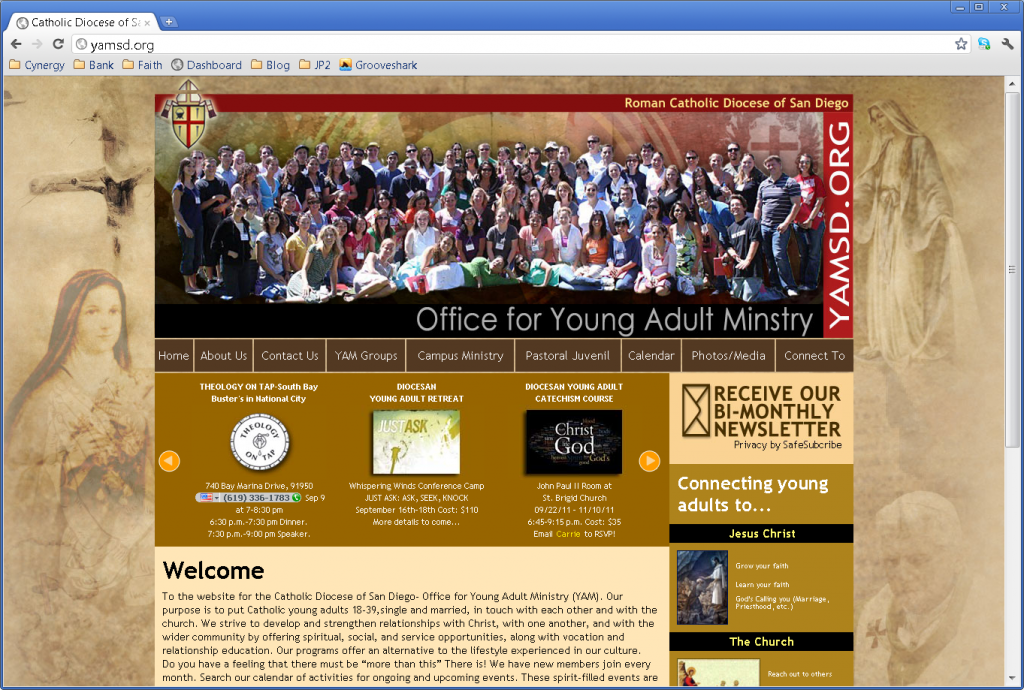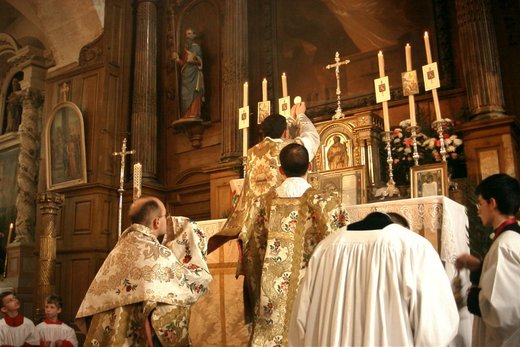Biblical Language
I was looking through my brower’s bookmarks and came across this nice little post from Aggie Catholics which lists some of the popular phrases which come from the Bible. Here are some of my favourites:
“Living off the fat of the land” – Genesis 45:17-18
“Can a leopard change his spots?” – Jeremiah 13:23
“Eat, drink, and be merry” – Ecclesiastes 8:15
“The root of the matter” – Job 19:28
“Apple of my eye” – Deuteronomy 2:10 / Zechariah 2:8
“Twinkling of an eye” – 1 Corinthians 15:52
“A fly in the ointment” – Ecclesiastes 10:1
“Bite the dust” – Psalms 72: 9
“By the skin of our teeth” – Job 19:20




